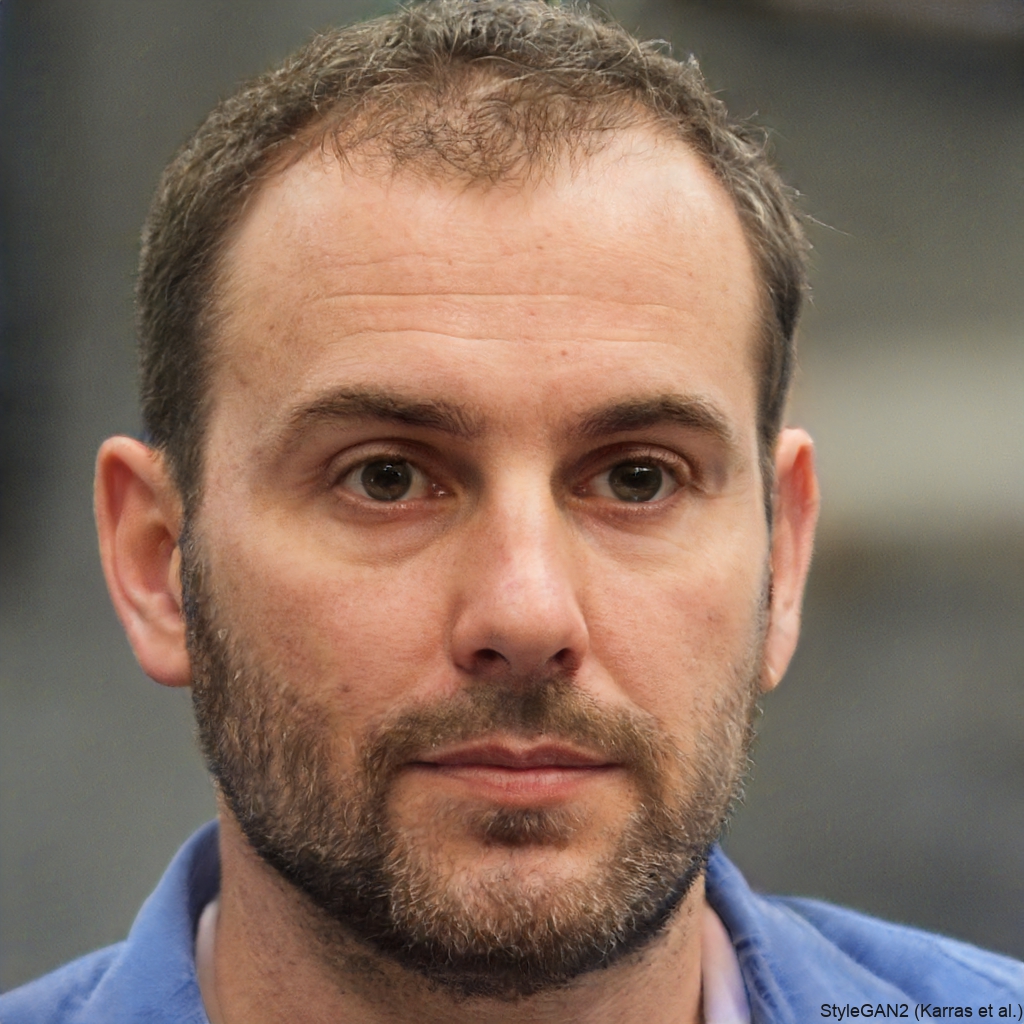The Digital Gold Rush Is Happening Right Now
Imagine waking up to a notification that you just made $500—while you were asleep. No commute. No boss. No fluorescent-lit office. Just you, your laptop, and the freedom to work from anywhere in the world. Sounds like a dream? For millions of people, it’s already reality.
In 2025, making money online isn’t just a side hustle—it’s a full-blown economic revolution. With over 5.3 billion internet users worldwide and digital platforms evolving faster than ever, the opportunities to earn income online are expanding at an unprecedented rate. Whether you’re a student, a stay-at-home parent, or someone looking to escape the 9-to-5 grind, the digital economy is offering real, scalable ways to generate income.
But here’s the catch: not all online ventures are created equal. Some niches explode with potential, while others fizzle out before you can break even. That’s why choosing the right niche is more important than ever.
In this article, we’ll explore the most profitable online niches in 2025, backed by real trends, consumer behavior shifts, and emerging technologies. From AI-powered services to wellness coaching, we’ll break down what’s working, why it’s working, and how you can get started—no matter your skill level or budget.
Let’s dive in and uncover the digital gold mines that could change your financial future.
1. AI and Automation Services: The New Digital Workforce
Artificial Intelligence isn’t just changing industries—it’s creating entirely new ways to make money. In 2025, AI tools are no longer just for tech experts. Platforms like ChatGPT, MidJourney, and Jasper have made it possible for everyday people to offer high-value services using AI as their co-pilot.
So, what kind of services are booming?
- AI Content Creation: Businesses need blogs, social media posts, and product descriptions—fast. Freelancers are using AI to generate content at scale, then editing and personalizing it for clients.
- AI-Powered Virtual Assistants: Entrepreneurs hire AI-enhanced assistants who manage emails, schedule meetings, and even draft proposals using tools like Reclaim.ai or Motion.
- Prompt Engineering: Yes, this is now a real job. Companies pay professionals to craft effective prompts that get the best results from AI models.
Why is this niche so profitable?
Because demand is skyrocketing. A 2024 report by Grand View Research predicts the global AI market will grow at a 37.3% CAGR through 2030. Small businesses, solopreneurs, and marketers are all scrambling to adopt AI—but most don’t know how to use it effectively.
How can you get started?
- Learn the basics of AI tools (free courses on YouTube or Coursera).
- Pick a service you can offer (e.g., AI-generated blog writing).
- Start small on platforms like Fiverr or Upwork.
- Scale by building your own website or client list.
Real-life example: Sarah, a former teacher from Texas, started offering AI-assisted lesson plans to schools. Within six months, she was earning $4,000/month—and she only works 15 hours a week.
Pro Tip: The key isn’t to replace humans with AI—it’s to use AI to multiply your productivity. Clients don’t want robotic content; they want fast, high-quality work with a human touch.
As we move deeper into the AI era, this niche won’t just be profitable—it’ll be essential.
2. Health and Wellness Coaching: The $7.5 Trillion Global Movement
Let’s talk about a niche that’s not only profitable but deeply meaningful: health and wellness.
In 2025, the global wellness market is projected to reach $7.5 trillion, according to the Global Wellness Institute. And guess what? A huge chunk of that growth is happening online.
People are more stressed, more anxious, and more aware of their health than ever before. They’re not just looking for quick fixes—they want sustainable, personalized solutions. That’s where online coaches come in.
Popular sub-niches include:
- Mental health coaching (stress, anxiety, burnout)
- Sleep optimization
- Nutrition and gut health
- Fitness for busy professionals
- Mindfulness and meditation
What makes this niche so powerful is its high ticket potential. Unlike selling $5 eBooks, wellness coaching often involves monthly programs priced between $200 and $1,000. Some top coaches even charge $5,000+ for 12-week transformation programs.
But do you need to be a doctor or certified expert?
Not necessarily. While credentials help, many successful coaches start with personal experience. Did you lose 30 pounds? Overcome anxiety? Improve your sleep? That journey is valuable—and people will pay to learn from it.
How to build credibility fast:
- Share your story on Instagram or TikTok.
- Offer free webinars or challenges.
- Get certified through affordable online courses (e.g., Institute for Integrative Nutrition).
- Collect testimonials from early clients.
Case in point: James, a software developer from Canada, struggled with insomnia for years. After fixing his sleep with circadian rhythm hacks, he launched an online course called Sleep Like a CEO. He now earns over $10,000/month—and helps thousands sleep better.
Remember: People don’t buy programs—they buy hope, transformation, and results. If you can deliver that, you have a winning niche.
And with wearable tech (like Oura Rings and Whoop) making health data more accessible, coaches can now offer data-driven advice—adding even more value.
3. Sustainable and Ethical Living: Profit with Purpose
Here’s a trend that’s not going away: consumers want to spend money on brands and services that align with their values.
In 2025, sustainability isn’t just a buzzword—it’s a business model. A Nielsen study found that 73% of global consumers would change their habits to reduce environmental impact. That’s a massive market waiting to be tapped.
So how can you make money in this space?
Top opportunities include:
- Zero-waste product reviews and affiliate marketing: Recommend reusable straws, compost bins, or eco-friendly fashion brands and earn commissions.
- Sustainable lifestyle coaching: Help people reduce waste, shop ethically, or transition to a low-impact home.
- Digital products: Sell e-books like “30 Days to a Plastic-Free Home” or printable meal planners with seasonal, local recipes.
- Online communities: Create a paid membership group focused on sustainable parenting, green investing, or minimalist living.
Why this niche works in 2025:
Governments are pushing green policies, Gen Z is demanding ethical brands, and climate awareness is at an all-time high. This isn’t a fad—it’s a cultural shift.
Plus, people are tired of greenwashing. They want authentic voices—real people sharing real journeys.
How to stand out:
- Be transparent. Share your wins and your failures.
- Focus on one sub-niche (e.g., sustainable fashion for moms).
- Use storytelling. A video of you composting your kitchen scraps can go viral.
- Partner with eco-brands for sponsorships.
Example: Mia, a college student in Oregon, started a TikTok account documenting her journey to live with zero waste. She now earns $6,000/month through affiliate links, brand deals, and her “Eco Starter Kit” digital guide.
Fun fact: The global eco-friendly products market is expected to grow to $500 billion by 2027. That’s a lot of reusable coffee cups—and a lot of opportunity.
So if you care about the planet, this niche lets you do good and do well—financially and emotionally.
4. Remote Work and Digital Nomad Solutions: Freedom Has a Price (And You Can Charge It)
The way we work has permanently changed. In 2025, over 32% of the global workforce is fully remote, and millions more are hybrid. This shift has created a booming market for services that support digital nomads and remote professionals.
Think about it: when someone quits their job to work from Bali or Medellín, what do they need?
- Reliable internet tips
- Co-working space recommendations
- Visa and tax advice
- Productivity tools
- Remote job coaching
That’s where you come in.
Profitable sub-niches in this space:
- Remote job coaching: Help people land remote roles in tech, marketing, or customer support.
- Digital nomad travel planning: Offer curated itineraries for work-friendly destinations.
- Tech setup services: Help new remote workers set up ergonomic home offices or dual-monitor systems.
- Online courses: Teach skills like time zone management, asynchronous communication, or freelancing abroad.
Why is this niche exploding?
Because freedom is the new luxury. People don’t just want to work from home—they want to work from anywhere. And they’re willing to pay for guidance.
A 2024 survey by MBO Partners found that 16.9 million Americans are now independent workers, many of them embracing location independence.
How to start:
- Document your own journey (if you’re a remote worker or digital nomad).
- Create free content on YouTube or LinkedIn (e.g., “How I Got My First Remote Job”).
- Offer a low-cost product first (e.g., a $27 checklist).
- Scale to coaching or group programs.
Success story: Alex and Lisa, a couple from Chicago, quit their jobs and traveled for two years. They documented their journey on a blog and now run a $15,000/month business teaching others how to become digital nomads—with courses, coaching, and a private community.
Insight: The remote work niche isn’t just about jobs—it’s about lifestyle design. People aren’t just buying a service; they’re buying a vision of freedom.
And with co-living spaces like Selina and Outsite growing rapidly, the ecosystem is more supportive than ever.
5. Personal Finance and Side Hustle Education: Teaching Others to Earn More
Money is stressful. But in 2025, more people are taking control of their finances—and they’re looking for help.
The personal finance niche has exploded, especially in the online space. From TikTok finance gurus to YouTube budgeting experts, financial education is now entertainment.
And here’s the best part: you don’t need to be rich to teach people about money.
In fact, some of the most trusted voices are people who’ve been in debt, lived paycheck to paycheck, or paid off $50,000 in student loans.
Top opportunities in this niche:
- Budgeting and debt payoff coaching
- Investing for beginners (especially in crypto, ETFs, or real estate crowdfunding)
- Side hustle idea guides (e.g., “50 Side Hustles That Pay $100/Day”)
- Credit repair services
- Financial literacy for teens or couples
Why this niche is so profitable:
Because money is emotional. People are tired of feeling broke. They want hope, clarity, and a roadmap.
And unlike physical products, digital finance courses have near-zero overhead. Once you create a course, you can sell it forever.
Real example: Tiffany, a single mom from Florida, paid off $35,000 in debt and started a YouTube channel. She now earns over $20,000/month from her “Debt-Free Journey” course, sponsorships, and a membership community.
How to build trust fast:
- Share your story (transparency builds credibility).
- Use simple language—no jargon.
- Focus on one audience (e.g., “Millennial moms who want to start investing”).
- Offer free value first (e.g., a free budget template).
Pro Tip: Avoid get-rich-quick schemes. The most successful finance creators focus on education, not hype. They build long-term relationships, not one-time sales.
With inflation, job uncertainty, and rising living costs, this niche isn’t going anywhere. If anything, demand will only grow.
6. Niche Learning and Micro-Skills: The Rise of the “Learn It, Earn It” Economy
Remember when you needed a four-year degree to get ahead? In 2025, that’s changing fast.
Enter the micro-skills economy—where people learn specific, in-demand skills in weeks, not years, and monetize them immediately.
Platforms like Skillshare, Udemy, and even TikTok are turning everyday experts into online teachers.
What kind of micro-skills are in demand?
- Canva design for small businesses
- Excel automation with Power Query
- Voiceover recording for YouTube
- Substack newsletter writing
- Instagram Reels editing
- Basic web development with Webflow
The beauty of this niche? You can teach what you already know—and get paid for it.
For example, if you’re great at organizing Google Sheets, you can create a course called “Spreadsheet Hacks for Entrepreneurs” and sell it for $49. One course, hundreds of sales, passive income.
Why is this booming in 2025?
Because the job market is shifting. Companies want skills, not just degrees. And individuals want to future-proof their careers without spending years in school.
A report by the World Economic Forum estimates that 85% of jobs in 2030 haven’t been invented yet. That means continuous learning isn’t optional—it’s essential.
How to start teaching:
- Identify a skill you’re good at (ask friends: “What do you always ask me for help with?”).
- Break it into a short course (30-60 minutes).
- Host it on Teachable, Podia, or Gumroad.
- Promote it on social media or via email.
Success story: Diego, a graphic designer from Mexico, created a $29 course on “Designing Logos in Canva”. He promoted it on Pinterest and made over $50,000 in 12 months—with almost no ongoing effort.
Key insight: People don’t want to become experts—they want to solve a specific problem fast. Your job is to make that happen.
And with AI tools helping create course content, quizzes, and even videos, launching a course has never been easier.
7. The Creator Economy: Turning Passion into Profit
We’ve saved one of the biggest for last: the creator economy.
In 2025, over 50 million people identify as creators—from YouTubers and podcasters to newsletter writers and Twitch streamers. And this isn’t just a hobby. The creator economy is now worth over $250 billion.
But here’s the good news: you don’t need millions of followers to make money.
Thanks to platforms like Patreon, Buy Me a Coffee, and Substack, creators can earn income directly from their audience—even with just a few thousand engaged fans.
Ways creators make money:
- Memberships and subscriptions (e.g., $5/month for exclusive content)
- Digital products (e-books, templates, presets)
- Affiliate marketing (recommending tools you love)
- Sponsorships (brand deals)
- Online courses or coaching
What makes this niche so powerful?
It’s built on authenticity and trust. People follow creators because they feel like friends. And when you have that connection, monetization becomes natural.
Example: Emma, a book lover from Ireland, started a newsletter called “Cozy Reads”. She shares book reviews, reading lists, and cozy lifestyle tips. With just 8,000 subscribers, she earns $7,000/month through paid subscriptions and affiliate links to bookstores.
How to start as a creator:
- Pick a passion (e.g., baking, vintage fashion, productivity).
- Choose one platform (start with Instagram, TikTok, or a blog).
- Post consistently (focus on value, not virality).
- Engage with your audience (reply to comments, ask questions).
- Monetize gradually (don’t rush—build trust first).
Remember: The goal isn’t to be famous. It’s to be useful, relatable, and consistent.
And with AI tools helping with editing, scripting, and scheduling, you can do more with less time.
Conclusion: Your Online Income Journey Starts Today
We’ve covered a lot—from AI services and wellness coaching to sustainable living and the creator economy. But here’s the big takeaway: the best niche for you isn’t the most profitable one—it’s the one that aligns with your skills, passions, and values.
In 2025, making money online isn’t about luck. It’s about solving real problems for real people—in a way that feels authentic and sustainable.
You don’t need a fancy degree. You don’t need to invest thousands. You just need to start.
Pick one idea that excites you. Test it with a small project. Learn from feedback. Improve. Repeat.
The online world rewards action, not perfection.
So ask yourself: What do I care about? What do I know that others might find valuable? How can I use the tools of 2025 to serve people and earn income at the same time?
The answers to those questions could be the start of something life-changing.
Now it’s your turn: Which of these niches resonates with you the most? Have you already started an online venture? Share your thoughts in the comments below—we’d love to hear your story.
And if you found this article helpful, share it with someone who’s dreaming of a more flexible, fulfilling way to earn money. Because in the digital age, the best opportunities aren’t kept secret—they’re shared.
Here’s to your success, your freedom, and your future—online.

Danilo Ferreira is a passionate entrepreneur, travel, and financial freedom enthusiast, always seeking new ways to expand his horizons and live with purpose. Driven by a high-performance mindset, he combines discipline and curiosity to achieve ambitious goals, exploring the world while building projects that reflect his vision of independence and continuous growth.







